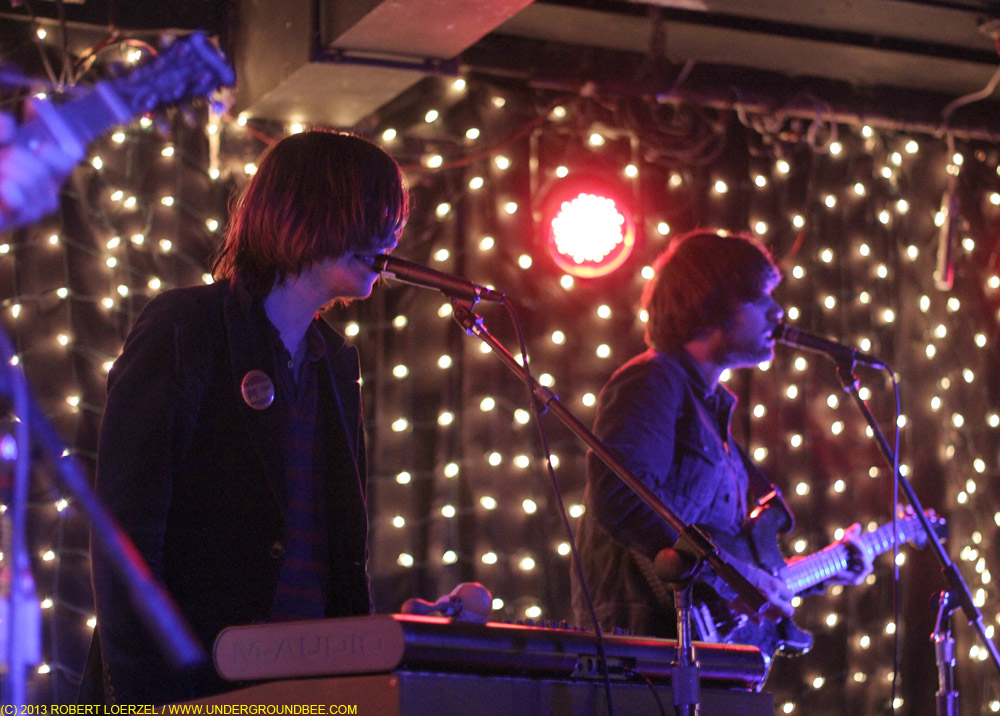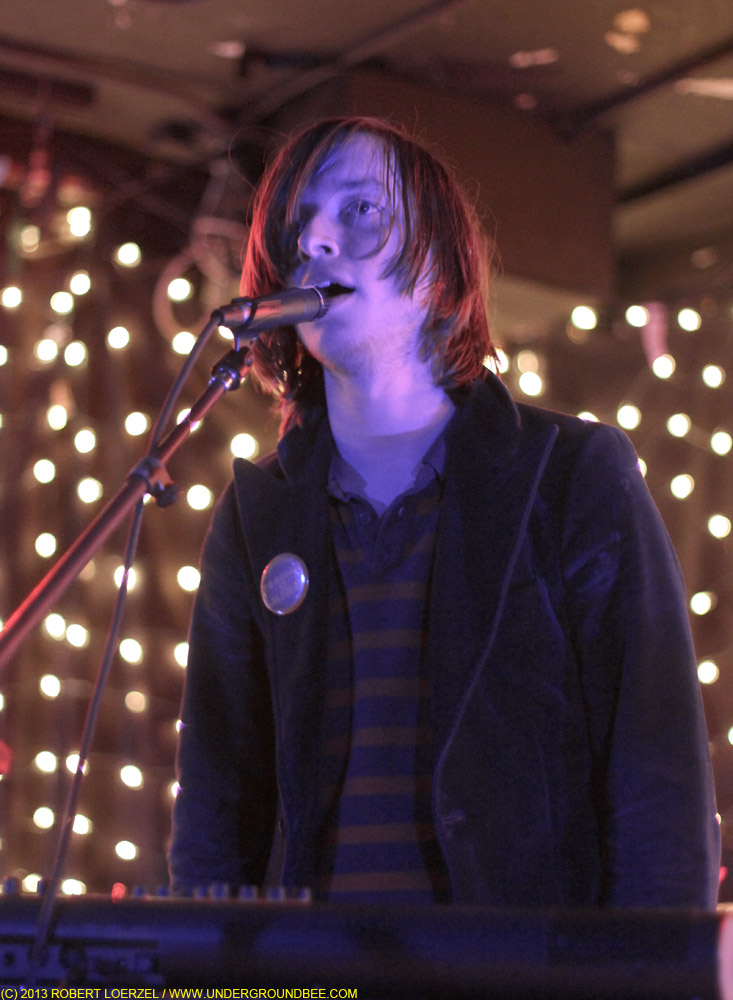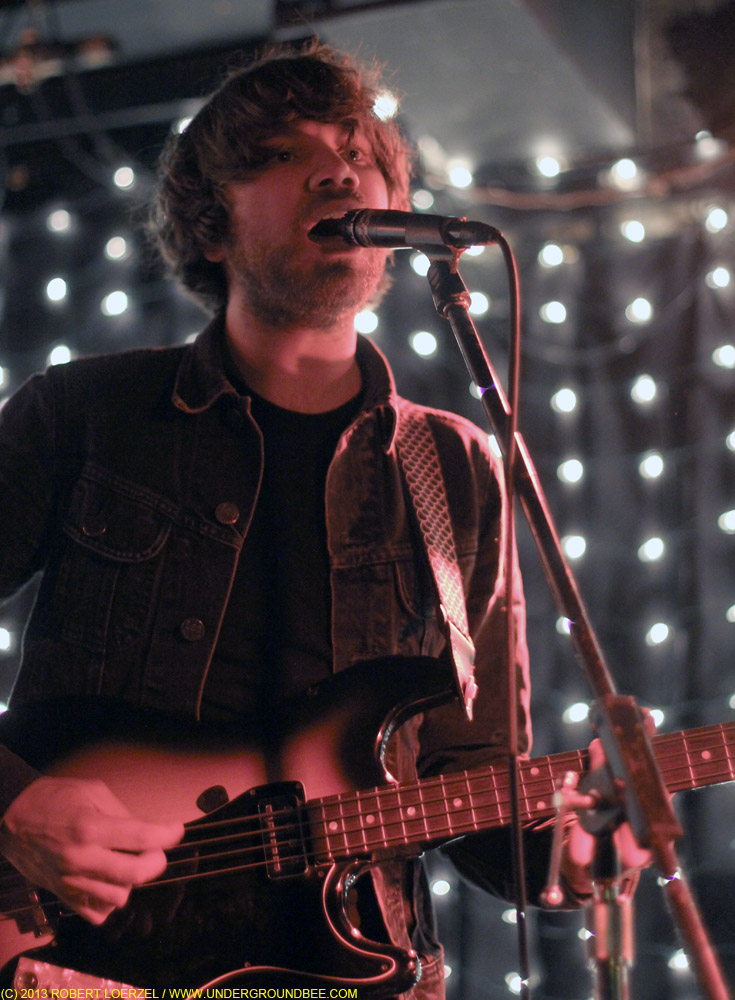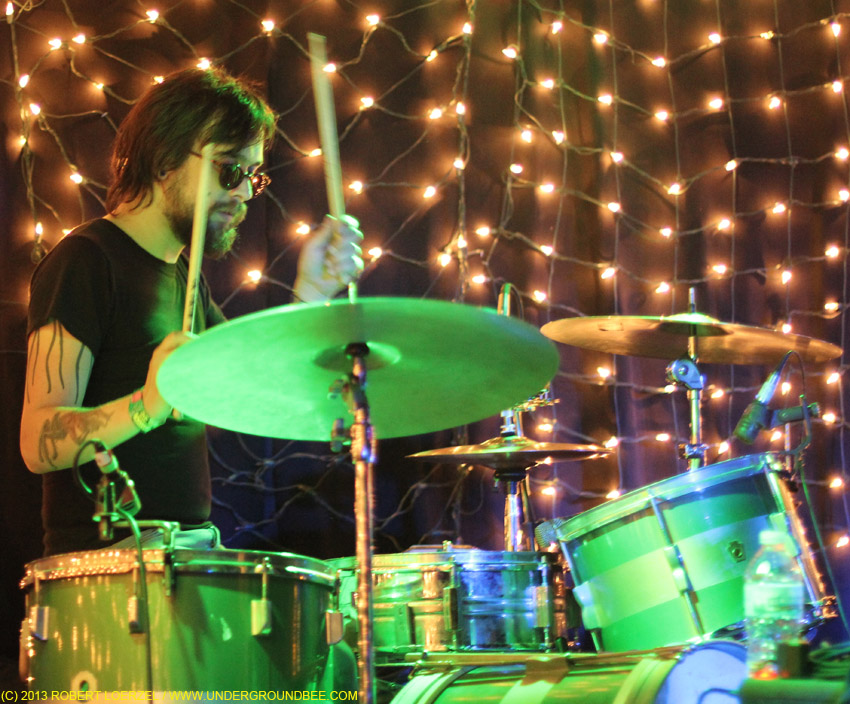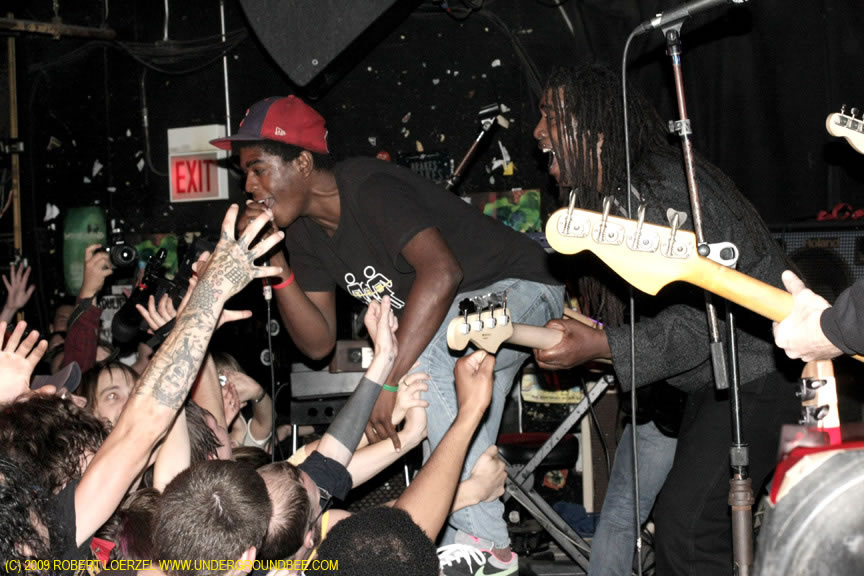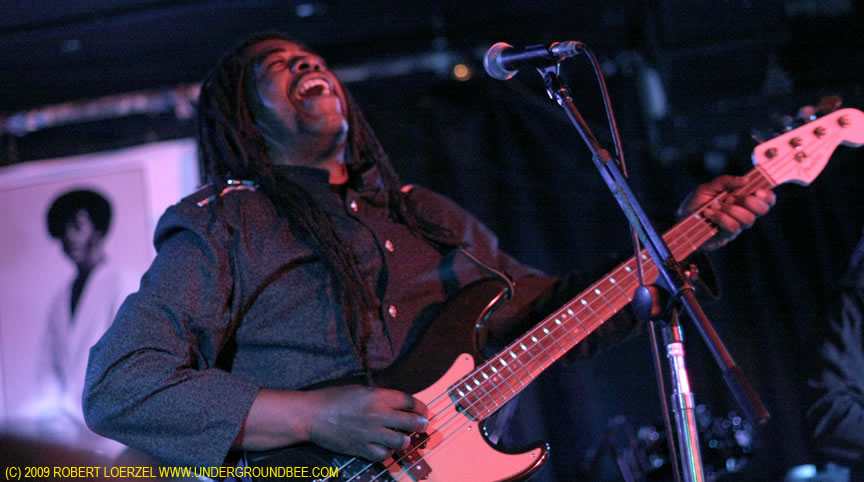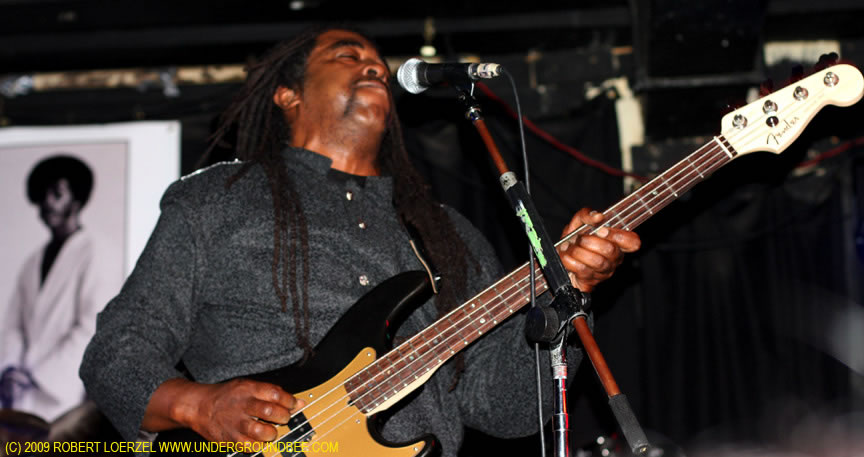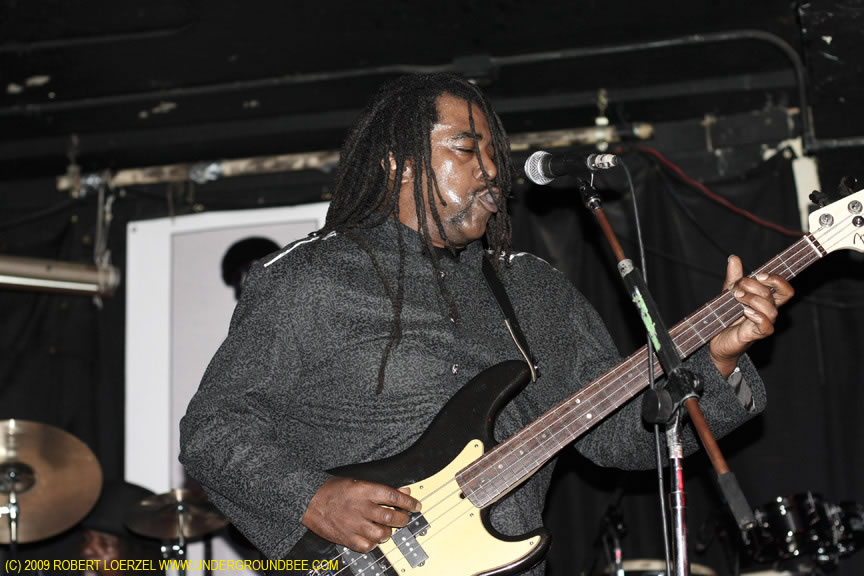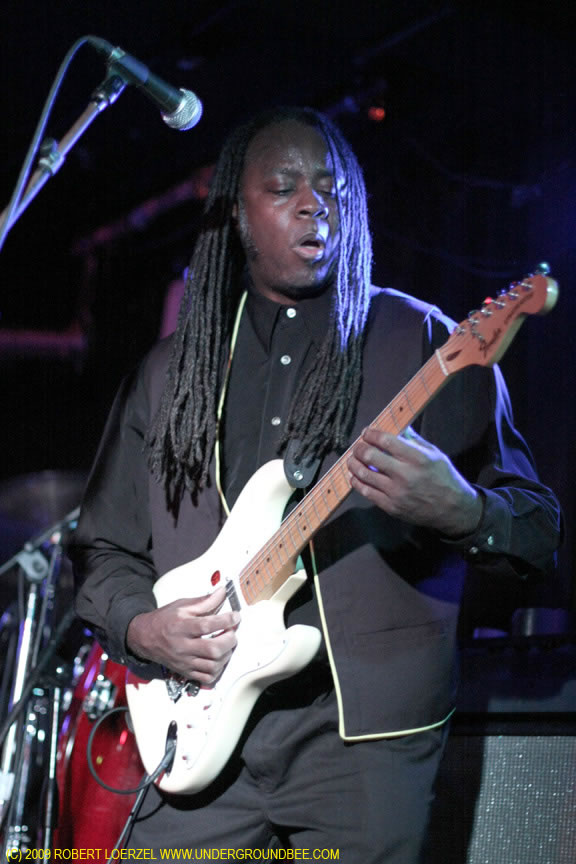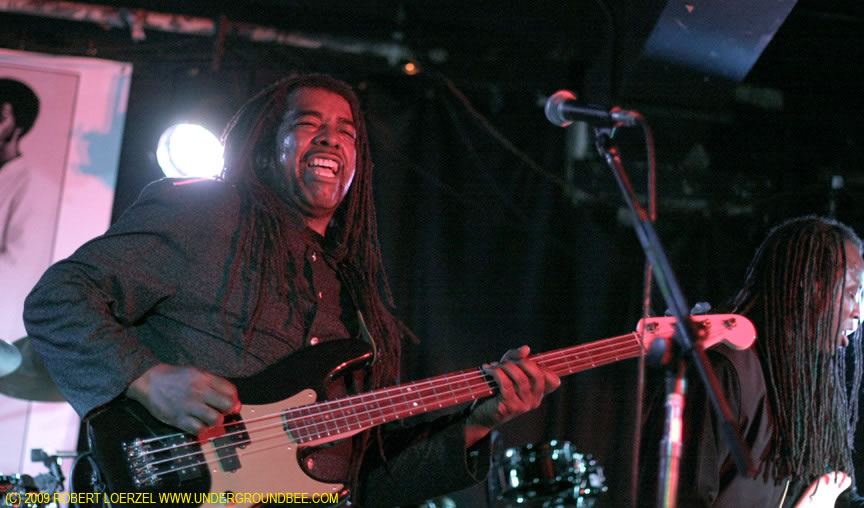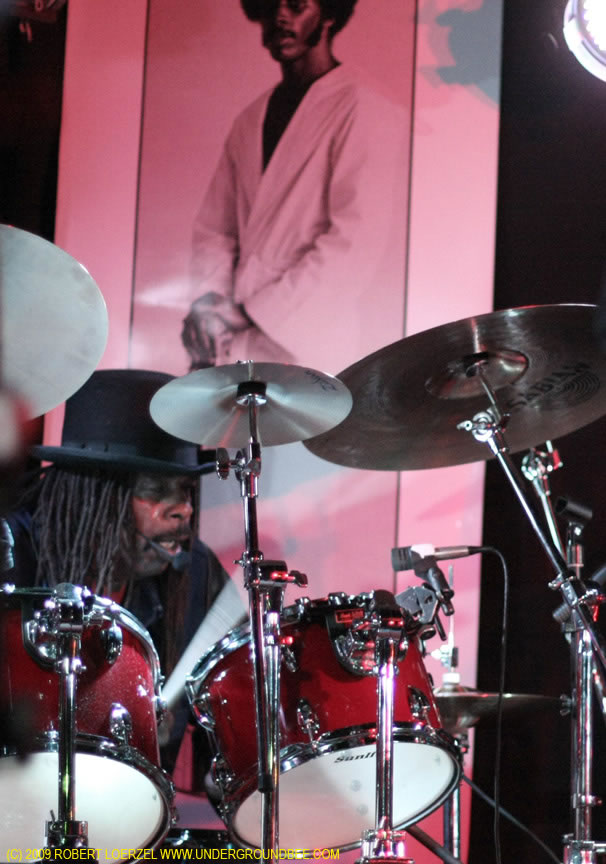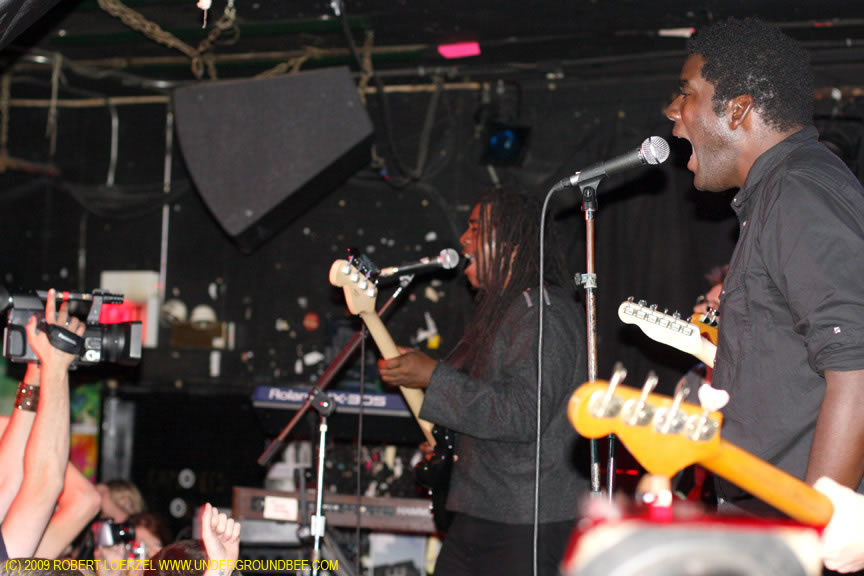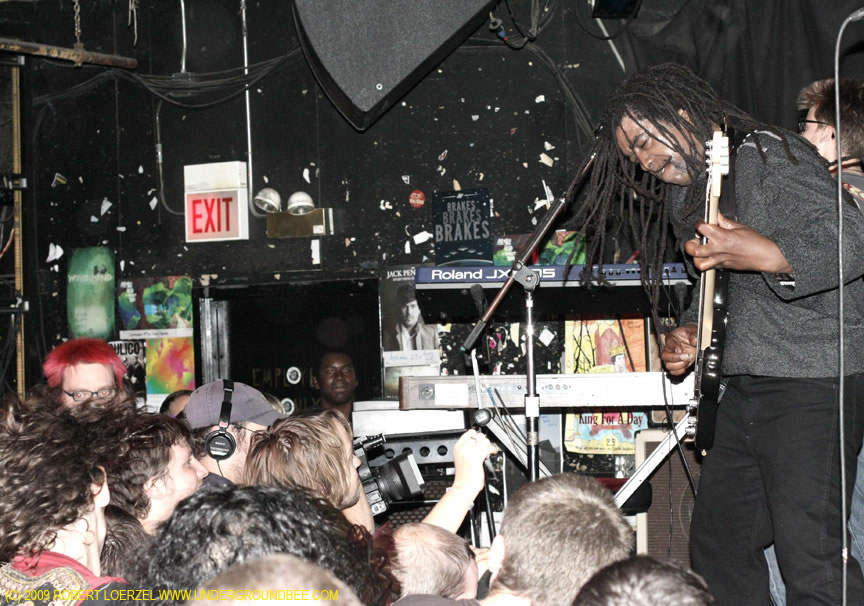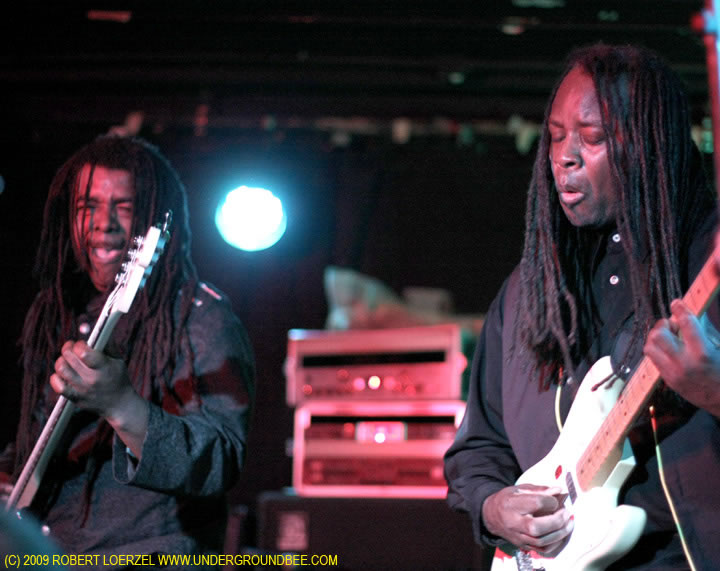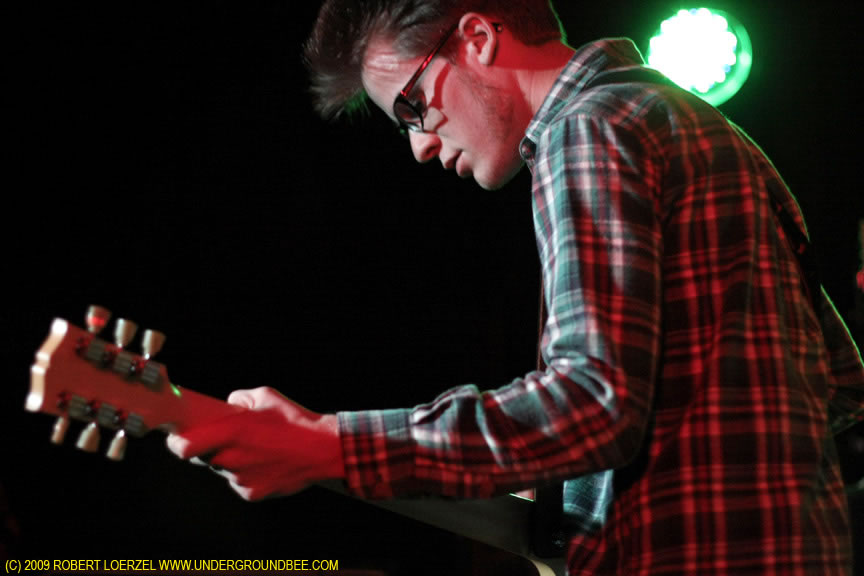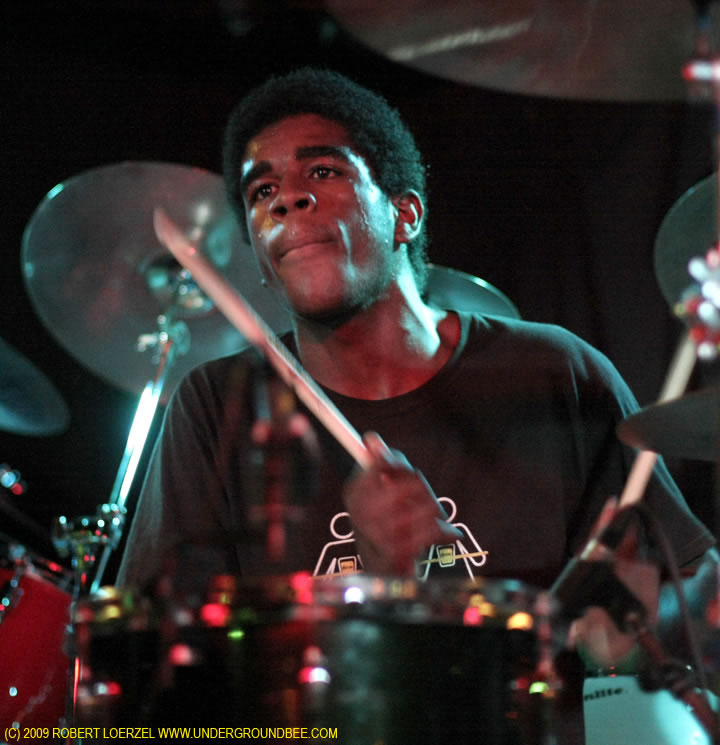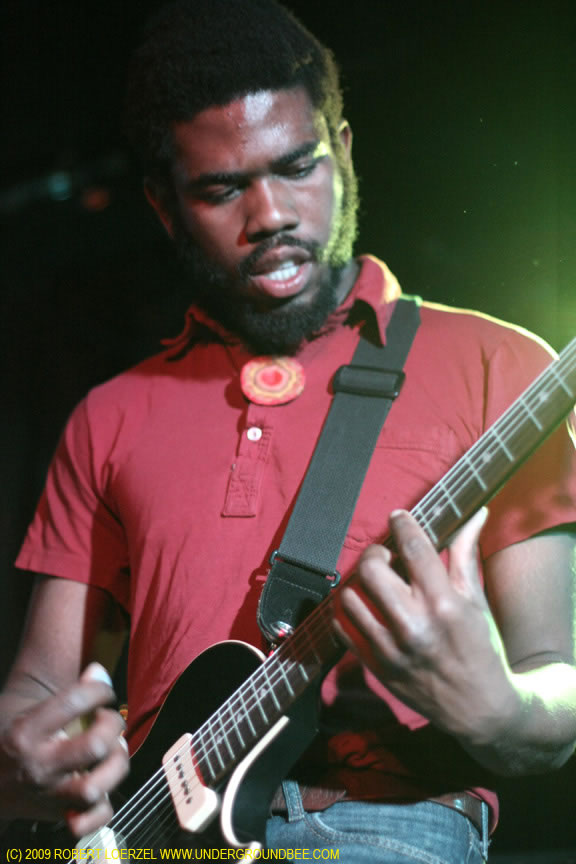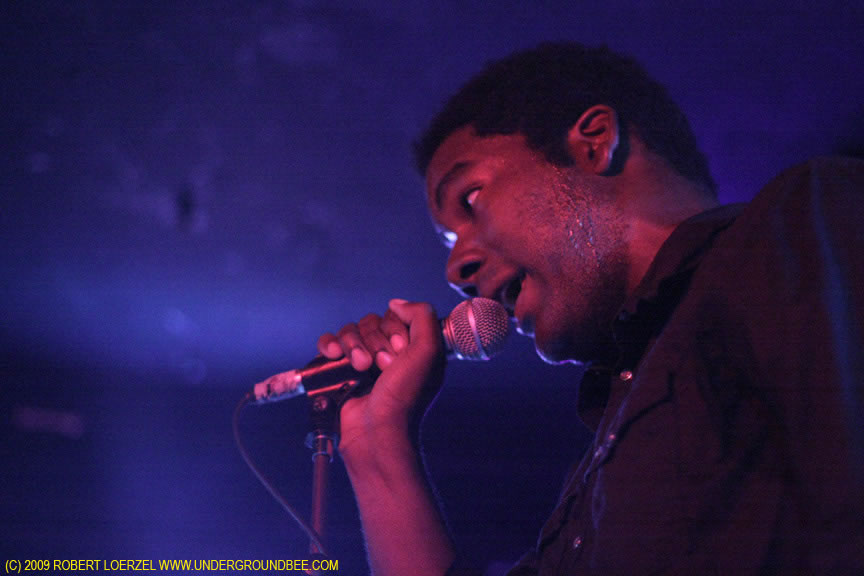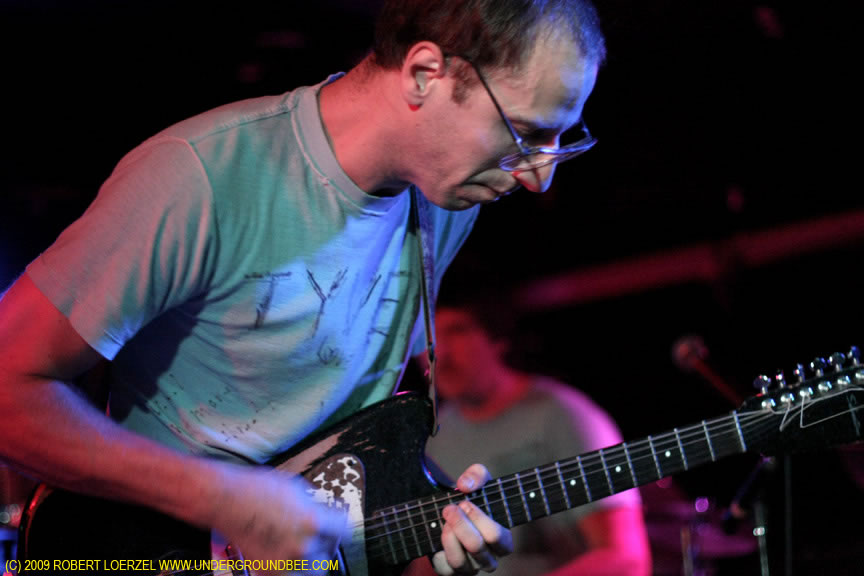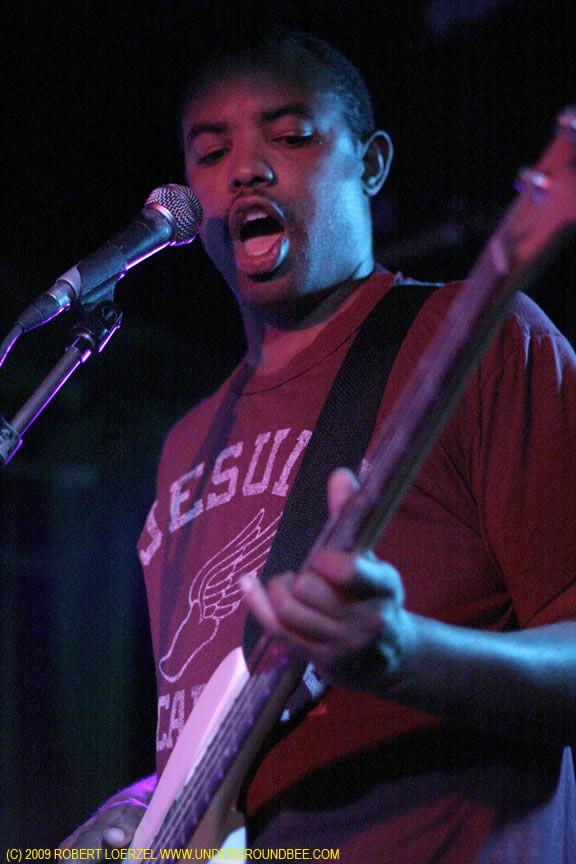I’m not quite as swamped with concerts this week as I have been lately, but here are a few good ones that happened in recent days.
 Soy Un Caballo sounds like the name for a Spanish band, or maybe a New York pretending to be a Spanish band. The group’s name is Spanish for “I Am a Horse.” But this male-female duo is actually Belgian, and they sing most of their songs in French. They were delightful Friday night (June 19) at Schubas, playing a set of delicate songs on guitar, bass and vibes with pretty vocal harmonies. “It’s very courageous of you to take French lessons on a Friday night,” one of them remarked. Courageous? Hardly! The band happens to be on a Chicago label, Minty Fresh, which has a history of finding great bands from overseas. Check out Soy Un Caballo’s music at www.myspace.com/soyuncaballo.
Soy Un Caballo sounds like the name for a Spanish band, or maybe a New York pretending to be a Spanish band. The group’s name is Spanish for “I Am a Horse.” But this male-female duo is actually Belgian, and they sing most of their songs in French. They were delightful Friday night (June 19) at Schubas, playing a set of delicate songs on guitar, bass and vibes with pretty vocal harmonies. “It’s very courageous of you to take French lessons on a Friday night,” one of them remarked. Courageous? Hardly! The band happens to be on a Chicago label, Minty Fresh, which has a history of finding great bands from overseas. Check out Soy Un Caballo’s music at www.myspace.com/soyuncaballo.
Photos of Soy Un Caballo.
 On Saturday night (June 20), the Empty Bottle had a strong, if somewhat mismatched, triple lineup. The headliners were O’Death, who got the crowd dancing like it was a real hoedown, while the band cranked out bluegrassy music with punk attitude. Ah, but a little bit of O’Death goes a long way for me. The fans loved it, anyway. The middle act on the bill, and my main reason for being there, was Tiny Vipers, the singer-songwriter also known as Jesy Fortino. She has some really nice songs, but they’re very quiet songs, and alas, the Bottle crowd was really chatty, making it almost painful at times to watch Fortino straining to be heard about that din. At several points, a big “shush” went up, and people shut up for a few minutes. The acoustic guitar picking and plaintive singing sounded beautiful… whenever I could hear it. (You can hear some of it here: www.myspace.com/tinyvipersss) The first act of the night was Balmorhea, an ensemble from Austin, Texas, that plays songs falling somewhere between chamber music and rock. It was pretty and mellow, though maybe a little too mellow. Balmorhea is practically an instrumental band, with vocals on only a few songs, but it was the ending of the show, when the members all came together and sang a cappella, that really stood out for me.
On Saturday night (June 20), the Empty Bottle had a strong, if somewhat mismatched, triple lineup. The headliners were O’Death, who got the crowd dancing like it was a real hoedown, while the band cranked out bluegrassy music with punk attitude. Ah, but a little bit of O’Death goes a long way for me. The fans loved it, anyway. The middle act on the bill, and my main reason for being there, was Tiny Vipers, the singer-songwriter also known as Jesy Fortino. She has some really nice songs, but they’re very quiet songs, and alas, the Bottle crowd was really chatty, making it almost painful at times to watch Fortino straining to be heard about that din. At several points, a big “shush” went up, and people shut up for a few minutes. The acoustic guitar picking and plaintive singing sounded beautiful… whenever I could hear it. (You can hear some of it here: www.myspace.com/tinyvipersss) The first act of the night was Balmorhea, an ensemble from Austin, Texas, that plays songs falling somewhere between chamber music and rock. It was pretty and mellow, though maybe a little too mellow. Balmorhea is practically an instrumental band, with vocals on only a few songs, but it was the ending of the show, when the members all came together and sang a cappella, that really stood out for me.
Photos of O’Death, Tiny Vipers and Balmorhea.
 Monday (June 22) was another night with great (and free!) live music at the Pritzker Pavilion in Millennium Park. It’s kind of hard to believe that Chicago city officials are cool enough to allow things like a concert by the Dirty Projectors to happen in a beautiful, world-class venue like the Pritzker. I guess that’s because the city government (for all of its many faults) has a smart Cultural Affairs Department. This particular show featured those indie-rock darlings from Brooklyn, the Dirty Projectors, opening for a stalwart Chicago act, the Sea and Cake. At least in the front part of the pavilion, it was clear that most of the twentysomething fans who rushed to get seats when the gates opened were Dirty Projectors fans. I overheard some of these kids saying that they didn’t even know who the Sea and Cake were, and some of them did not stick around for the headliners.
Monday (June 22) was another night with great (and free!) live music at the Pritzker Pavilion in Millennium Park. It’s kind of hard to believe that Chicago city officials are cool enough to allow things like a concert by the Dirty Projectors to happen in a beautiful, world-class venue like the Pritzker. I guess that’s because the city government (for all of its many faults) has a smart Cultural Affairs Department. This particular show featured those indie-rock darlings from Brooklyn, the Dirty Projectors, opening for a stalwart Chicago act, the Sea and Cake. At least in the front part of the pavilion, it was clear that most of the twentysomething fans who rushed to get seats when the gates opened were Dirty Projectors fans. I overheard some of these kids saying that they didn’t even know who the Sea and Cake were, and some of them did not stick around for the headliners.
The Dirty Projectors have intrigued me on the two previous times I’ve seen them, but at times, their music seemed like not entirely successful experimentation. They’re getting more press now, thanks in part to collaborations with Björk and David Byrne (neither of whom was present for this show, of course). And boy, the Dirty Projectors really connected this time. With an expanded lineup, the band is doing a lot more with vocal harmonies — really peculiar but very precise harmonies, with intervals, overlapping patterns and spot-on timing. It’s easy to see why Björk would want to work with them. I was wowed by the sound of those voices, which seemed almost like a programmed effect than an organic piece of singing happening right in front of me. The guitar melodies were striking, too, with lots of African style skewed into strange new territory.
 The Sea and Cake finished the show with a pretty good set, though as always, I find myself wishing that this band would break loose a little bit. They’re very talented, and their songs are smart compositions with inventive chords, but it’s always tamped down. The one thing that wasn’t tamped down was drummer John McIntire, who grimaced and made all sorts of intense expressions as he hammered away.
The Sea and Cake finished the show with a pretty good set, though as always, I find myself wishing that this band would break loose a little bit. They’re very talented, and their songs are smart compositions with inventive chords, but it’s always tamped down. The one thing that wasn’t tamped down was drummer John McIntire, who grimaced and made all sorts of intense expressions as he hammered away.
Photos of the Dirty Projectors and the Sea and Cake.
UPDATE: I was too busy today to pay attention to Twitter or anything like that, so I overlooked the news that the Dirty Projectors had been in a car accident. Everyone is reportedly OK. http://pitchfork.com/news/35710-dirty-projectors-in-car-accident/
